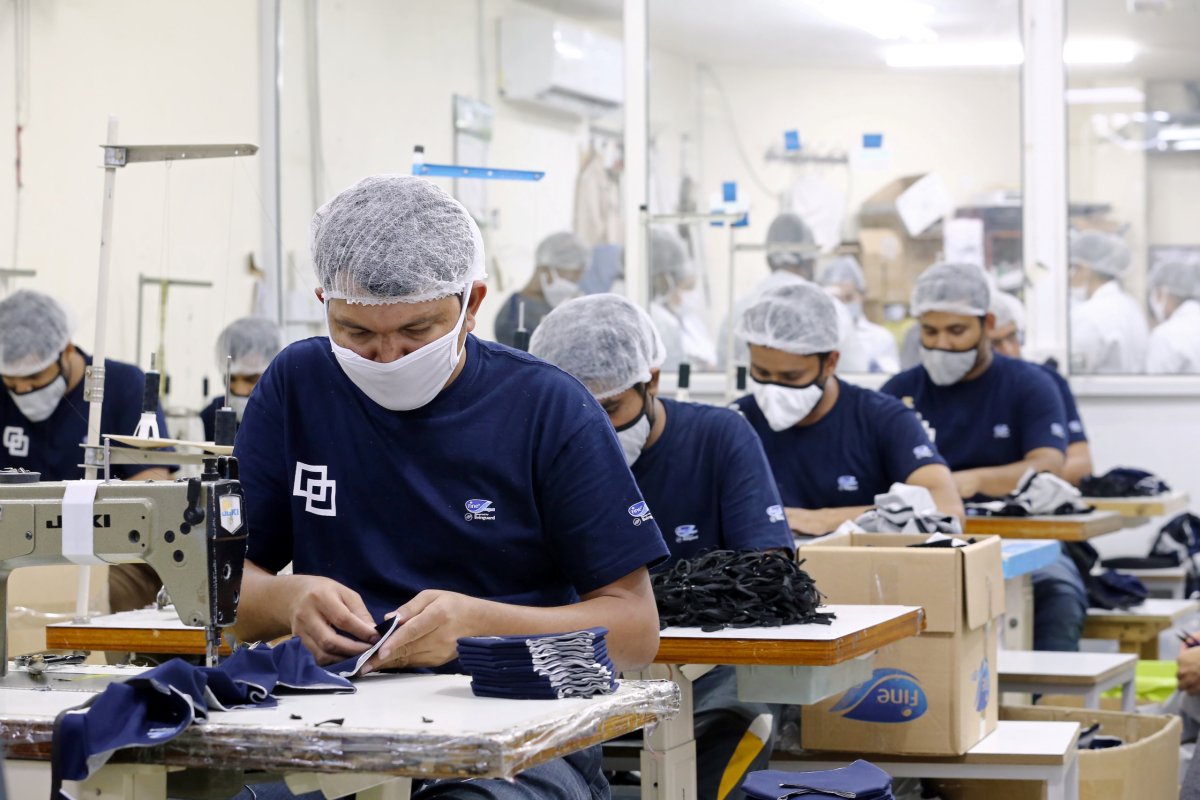DUBAI (Reuters) – Three weeks ago Fahmi al-Shawwa’s 3D printing workshop in Dubai was making parts for the Gulf oil and gas industry, now his machines churn out thousands of medical face visors to help the United Arab Emirates battle the coronavirus.
With flights grounded, workforces depleted and countries limiting exports, the coronavirus pandemic has disrupted global trade and forced countries to look closer to home for things such as face masks and sanitizing products.
The rapidly configurable 3D printers of Immensa, of which Shawwa is CEO, are also making spare parts for industries unable to source them abroad because of supply chain disruptions.
“As soon as we get out of this crisis we are going to see a lot more local manufacturing. A lot of companies have been looking at localizing their supply chain and this is a trigger,” said Shawwa.
Having seen shortages appear in virus hotspots such as Italy, Immensa decided to change its output and now makes 15,000-20,000 plastic face shields a week and has spoken to UAE authorities about what else the firm could assist with.
In the neighboring emirate of Ajman, a former work uniform factory is now making reusable cloth face masks for Fine Hygienic Holding that are flying off shelves of local supermarkets amid high demand.
Fine had to rapidly set up shop in the UAE in order to serve that market when both India and Jordan blocked the export of their newly designed face masks as the coronavirus crisis deepened, said CEO James Lafferty.
“We had to set up an entire business in eight days… We had to grab every potential resource we could get our hands on to meet the needs of the market,” he said.
“DIFFICULT” LOGISTICS
Fine, originally a manufacturer of tissue paper products, also donates some masks to the UAE and Jordanian governments.
But the company still needs to import the specially treated material it says kills germs for its masks, and logistics are “becoming difficult”.
“The airline industry has dramatically slowed, we airship everything, so it is taking us a bit longer, more than two or three times longer,” Lafferty said.
Dubai authorities said on Monday hygiene items such as gloves, masks and sterilisers were in sufficient stock and urged consumers to shop responsibly.
In the nearby Gulf island state of Bahrain, specialist cleaning manufacturer Dhaman has turned 99% of its production over to hand sanitizers and surface disinfectant, much of which supplies government departments.
But import costs have risen and CEO Mahmoud Hawari is now trying to source his packaging from local manufacturers instead.
(Reporting by Reuters TV team and Lisa Barrington; Writing by Lisa Barrington; Editing by Gareth Jones)
536380,536381,536382,536383,536384,536385,536386,536387,536388,536389,536390,”]






















